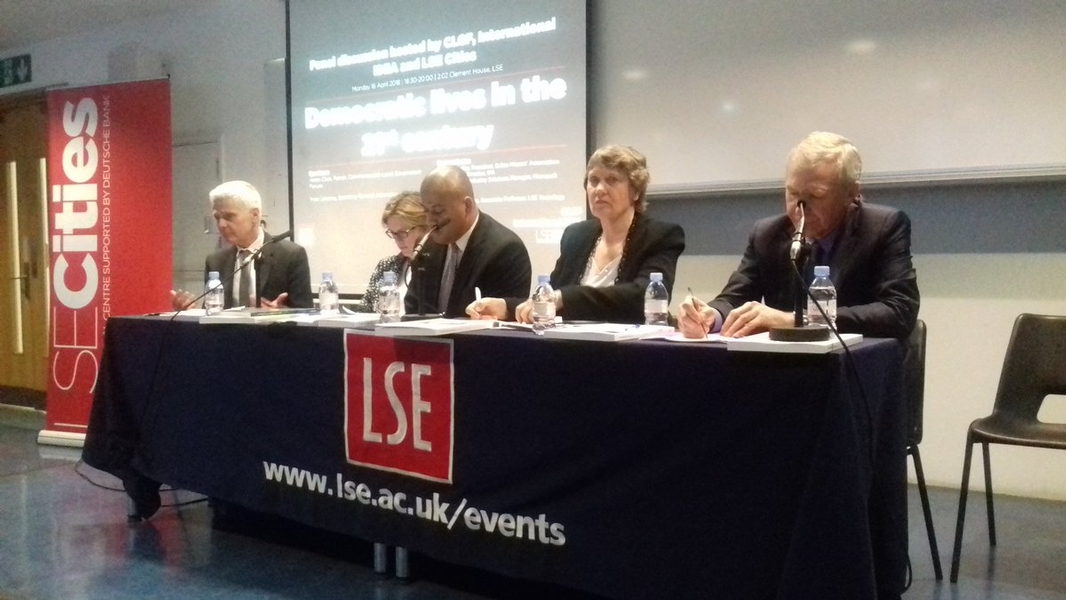Local Government Handbook launched

23 April 2018
CLGF launched the Commonwealth Local Government Handbook 2017/18 last week at the London School of Economics. Published biennially, this unique publication includes the following new features:
- data on the number of women politicians in local government;
- information about the National Urban Agenda; and
- details of what countries are doing to achieve the Sustainable Development Goals.
The 2017/18 Handbook country profiles are available on our website.
21st century democracy
The launch followed a debate about Democratic lives in the 21st Century organised by CLGF, LSE Cities and International IDEA. The panel of multi-level governmental experts included CLGF Patron and former New Zealand Prime Minister, Rt Hon Helen Clark; President of the Belize Mayors Association and former Mayor of Belize City, Darrell Bradley; Helena Zaum, who leads Microsoft UK’s CityNext programme for smart cities; Director of the LSE, Tony Travers; and former Belgium Prime Minister and International IDEA Secretary-General Yves Leterme; and it was chaired by LSE Associate Professor Michael McQuarrie and the discussion can be heard in full on the debate podcast.
The panel considered the current challenges and opportunities for democracy and the role cities and local governments can play in advancing democracy in the 21st century. There was consensus on the dangers of populism because of the increased discrimination against minority groups and provision of simplistic solutions for complex problems. Local and national governments working more closely was seen as crucial to ensuring the SDGs are met; with the suggestion that populism can be countered by delivering on the needs of citizens.
There was a stark warning that other challenges such as the rise of hybrid democracies, nationalism, corruption and state capture help to decrease levels of trust in politics and rising conflict, if unaddressed, could endanger hard-fought gains in new democracies, as well as corrode democratic principles in established democracies. The panel discussed the opportunities for democracy arising from the internet and social media boom, and the hazards that could possibly undermine it.
Good news for democracy
On a more positive note, from a global and long term perspective, and contradictory to current popular assumption, there was a belief that democracy is in good shape. History has shown that democracy has proven resilient over time: with a growth in the number of democracies in which competitive elections determine government power increasing from a quarter of the world’s countries in 1975. to two thirds in 2016. There has also been a significant increase in the number of women in national parliaments , although an important and unacceptable deficit still remains.
The occasion was used to launch another new publication from IDEA International: The Global State of Democracy: Exploring Democracy’s Resilience.
Back to News





